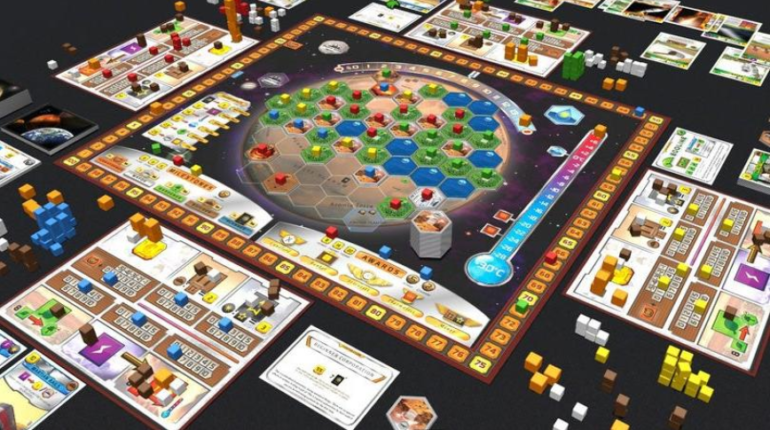TL;DR:
- FryxGames CEO Enoch Fryxelius asserts that their next board game project will not incorporate artificial intelligence (AI).
- The decision stems from a recent interview with Travis Worthington, a key figure in the board game industry.
- Enoch Fryxelius emphasizes that AI-generated artwork has not led to job losses within the company but acknowledges potential changes in the illustrator job landscape.
- The CEO unveils “Fates,” a cooperative Viking-themed game with 100% human-made graphics, highlighting a commitment to equitable compensation.
- The company’s stance reflects a preference for human creativity and ethical considerations over AI automation.
Main AI News:
Enoch Fryxelius, the visionary CEO of FryxGames, has made a resounding statement regarding the role of artificial intelligence in their future projects. In a move that prioritizes human creativity and ethics, FryxGames has declared that their upcoming board game will not feature AI integration.
The discourse surrounding this decision was ignited when Polygon unveiled the complete transcript of an interview with Travis Worthington, a creative luminary spearheading the new expansion and the President of Stronghold Games, the parent company of Indie Game Studios. With the “More Terraforming Mars Kickstarter” campaign nearing a remarkable $2 million milestone, industry enthusiasts were eager to learn about the company’s stance on AI.
In a candid Facebook video, Enoch Fryxelius underscored that his brother, Isaac Fryxelius, has harnessed the power of AI for generating artwork, emphasizing that this innovative approach has not resulted in any job losses or workforce replacements by AI. He conceded, however, that the realm of illustrators may see a transformation in job prospects, and there’s no reversing the inexorable march of this technological wave. The Fryxelius family plays a pivotal role in FryxGames, with several siblings contributing their talents, as showcased on the company’s Story page.
Notably, Fryxelius’s statements closely echoed those of Travis Worthington, as reported by Polygon. They abstained from delving into the ethical quandaries associated with AI usage and appeared to limit their perspective to the potential displacement of illustrators. This narrow outlook fails to acknowledge the broader ethical and copyright implications posed by AI, underscoring the need for companies to prioritize sustained support for artists.
Fryxelius unveiled their forthcoming project, a cooperative Viking-themed game titled “Fates,” boasting artwork by a Western illustrator. Emphasizing their commitment to equitable compensation, Fryxelius stated, “We have invested substantial sums, totaling tens of thousands of dollars, to commission these illustrations. Notably, these illustrations are not sourced from Eastern European or Asian artists but from a Western artist, at considerable expense.” While his choice of words regarding artists from different regions may raise eyebrows, it’s noteworthy that the illustrator in question is none other than his own sister, possibly influencing the decision to ensure fair remuneration.
In a resolute stance, Fryxelius affirmed that the forthcoming project would exclusively feature “100% human-made graphics,” signaling a firm commitment to retaining a human touch in their creative endeavors. It appears that FryxGames remains steadfast in its approach, unswayed by the allure of AI automation.
Conclusion:
FryxGames’ steadfast commitment to a human-centric approach in their next board game venture underscores their dedication to creativity, ethics, and fair compensation for artists. While AI has its merits, the company’s choice sets a noteworthy example in the market, emphasizing the enduring value of human craftsmanship in the gaming industry.

